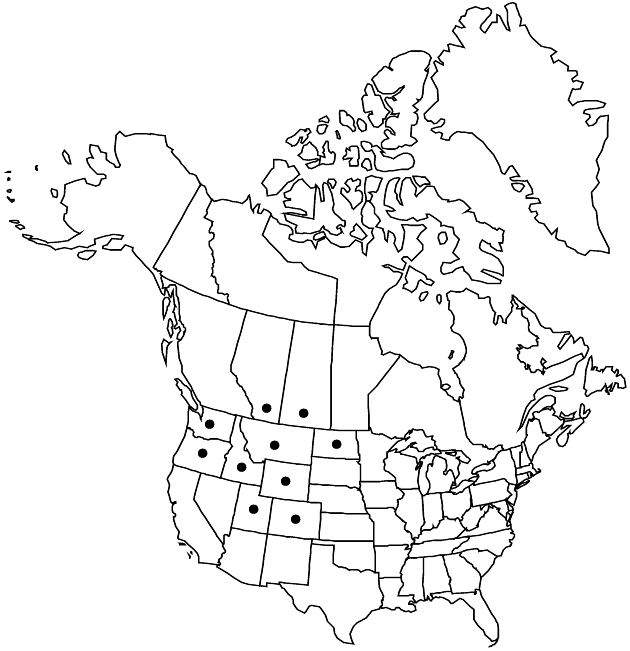Difference between revisions of "Crepis runcinata subsp. hispidulosa"
Publ. Carnegie Inst. Wash. 504: 96. 1938.
Endemic
Basionym: Crepis runcinata var. hispidulosa Howell ex Rydberg Mem. New York Bot. Gard. 1: 461. 1900
FNA>Volume Importer |
imported>Volume Importer |
||
| (6 intermediate revisions by 2 users not shown) | |||
| Line 7: | Line 7: | ||
|year=1938 | |year=1938 | ||
}} | }} | ||
| − | |basionyms={{Treatment/ID/ | + | |special_status={{Treatment/ID/Special_status |
| + | |code=E | ||
| + | |label=Endemic | ||
| + | }} | ||
| + | |basionyms={{Treatment/ID/Basionym | ||
|name=Crepis runcinata var. hispidulosa | |name=Crepis runcinata var. hispidulosa | ||
|authority=Howell ex Rydberg | |authority=Howell ex Rydberg | ||
| + | |rank=variety | ||
| + | |publication_title=Mem. New York Bot. Gard. | ||
| + | |publication_place=1: 461. 1900 | ||
}} | }} | ||
|synonyms= | |synonyms= | ||
| Line 35: | Line 42: | ||
-->{{#Taxon: | -->{{#Taxon: | ||
name=Crepis runcinata subsp. hispidulosa | name=Crepis runcinata subsp. hispidulosa | ||
| − | |||
|authority=(Howell ex Rydberg) Babcock & Stebbins | |authority=(Howell ex Rydberg) Babcock & Stebbins | ||
|rank=subspecies | |rank=subspecies | ||
| Line 49: | Line 55: | ||
|publication title=Publ. Carnegie Inst. Wash. | |publication title=Publ. Carnegie Inst. Wash. | ||
|publication year=1938 | |publication year=1938 | ||
| − | |special status= | + | |special status=Endemic |
| − | |source xml=https:// | + | |source xml=https://bitbucket.org/aafc-mbb/fna-data-curation/src/2e0870ddd59836b60bcf96646a41e87ea5a5943a/coarse_grained_fna_xml/V19-20-21/V19_311.xml |
|tribe=Asteraceae tribe Cichorieae | |tribe=Asteraceae tribe Cichorieae | ||
|genus=Crepis | |genus=Crepis | ||
Latest revision as of 19:51, 5 November 2020
Plants 25–50 cm. Leaves: petioles narrowly winged; blades obovate, 2.5–8 cm wide, margins remotely toothed, pinnately lobed, or entire (teeth not prominently white-tipped, apices obtuse), faces glabrous or glandular-hispid. Heads 10–30. Involucres 8–12 mm. Phyllaries lanceolate, apices acute, faces strongly or finely glandular-hispid. Cypselae brown, 3.5–5 mm, not beaked; pappi 4–8 mm. 2n = 22.
Phenology: Flowering Jun–Jul.
Habitat: Dry or moist alkaline meadows
Elevation: 1300–2500 m
Distribution

Alta., Sask., Colo., Idaho, Mont., N.Dak., Oreg., Utah, Wash., Wyo.
Discussion
Subspecies hispidulosa is distinguished by its relatively large, obtuse leaves and relatively numerous heads with glandular-hispid phyllaries.
Selected References
None.
Lower Taxa
None.